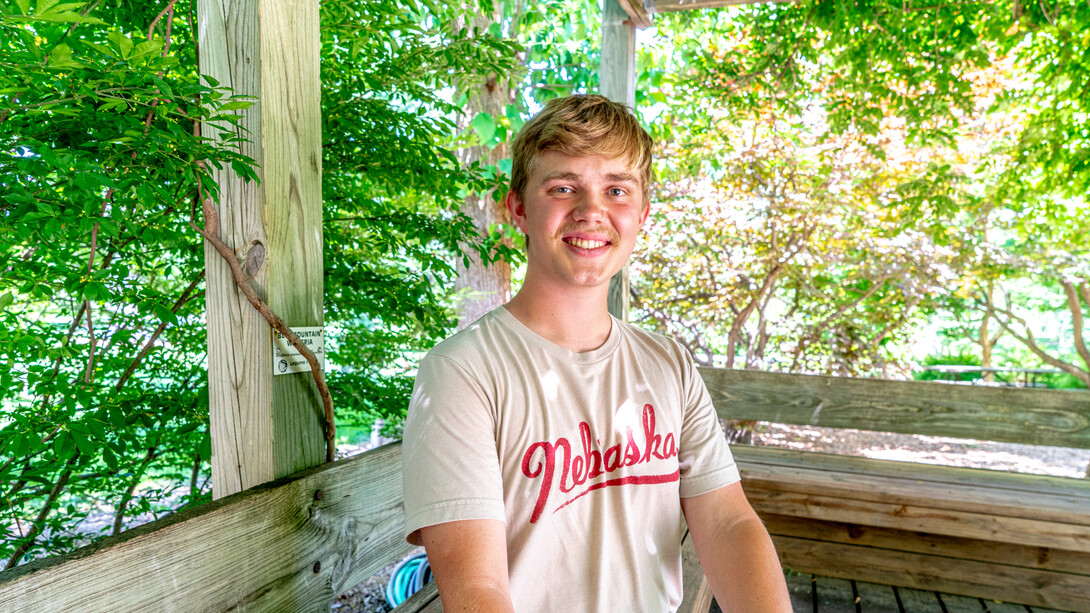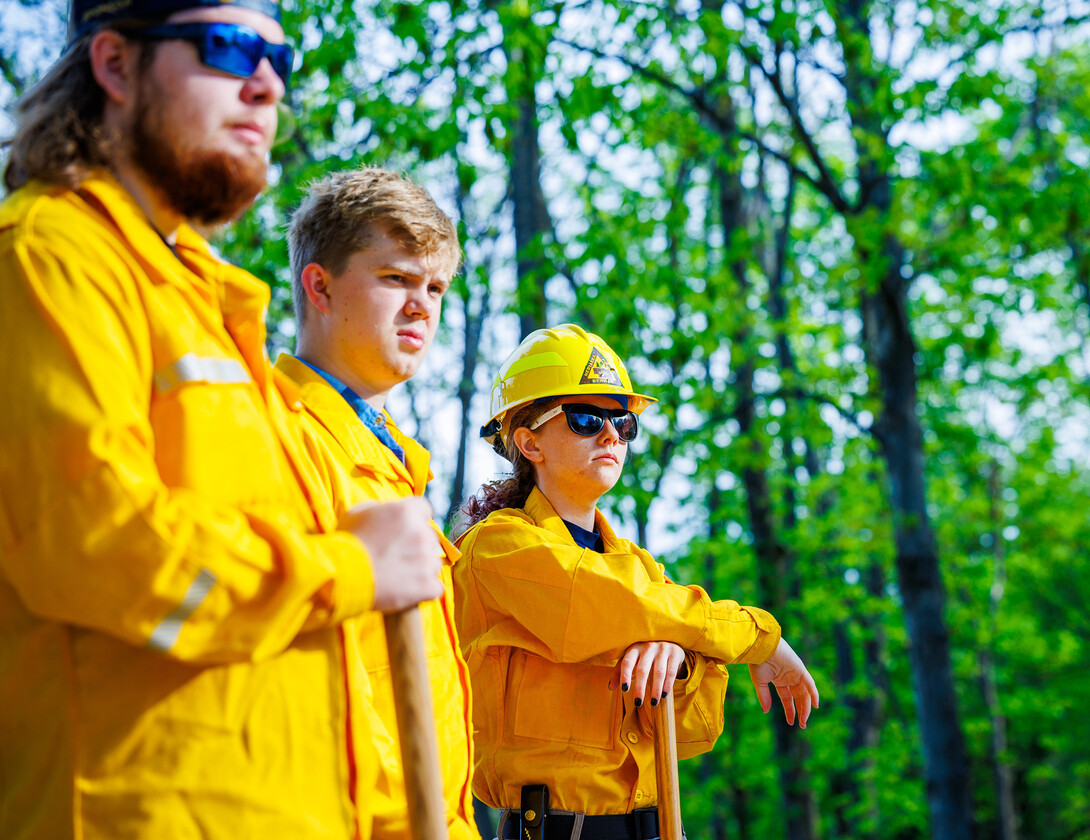
William Cunningham always has his eyes peeled for new opportunities to gain relevant experience in his major. Red card training, offered through the Institute of Agriculture and Natural Resources and the Nebraska Forest Service, was the perfect fit.
“Going into college, my mindset was that I wanted to try new things and see what's out there,” said Cunningham, a junior fisheries and wildlife major from Lincoln. “I'm really into picking up unique skills that could end up being helpful down the road.”
The university’s red card program, a basic firefighter training course that Cunningham participated in the spring, perfectly fit the bill of what he was looking for at Nebraska.
“I really want to have a career in conservation, so it's definitely in the vein of my career path,” Cunningham said. “When I first heard about this training from a wildlife field techniques class I was taking, I thought I might as well try it out.”

The program is designed to get more young Nebraskans educated in firefighting and fire prevention. The program begins with online coursework before bringing students out to East Campus for a field day to work and learn alongside professionals.
“The field day brought in people who had actual firefighting experience sharing anecdotes and tips with us,” Cunningham said. “It was really helpful to see and learn from people who are so passionate about what they do.”
In addition to learning directly from experienced firefighters, the field day included a heavy dose of hands-on learning.
"We actually built a fire line here on East Campus. There were about 12 of us and we had all the gear on — hard hats, leather gloves, everything — so it was a bit of a hot day,” he said. “The fire line is an important fundamental of wildland firefighting, so that was a cool experience.”
After completing a fitness test, Cunningham will earn his red card and be qualified for basic firefighting roles. And while he’s not sure where or when that will come into play, he's grateful for the chance to pick up new skills that will pay off later in his field.
“If you have people who are experienced with doing prescribed burns, you can mitigate the spread of invasive species and help maintain an ecosystem,” he said. “Also, it’s just good to have people on hand who can put out fires.”







